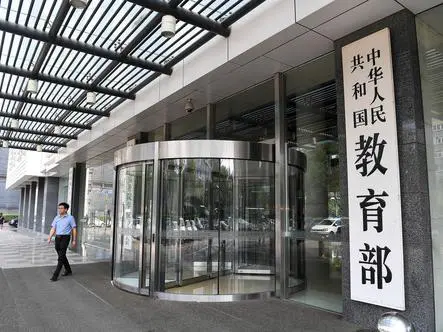Ma Zhiwei's morning starts at 5:40 a.m. when he begins watching students' video clips of home study in the class WeChat group.
Ma is in charge of a graduating class in Hengshui High School, northern China's Hebei Province. The school has won national fame for securing seats at noted universities in big Chinese cities for at least 80 percent of its graduates in the past two decades, but it also takes criticism for its exam-cramming approach.
In order to prevent large-scale gathering and flow of people amid the coronavirus outbreak, China has postponed the start of the new semester in primary and middle schools.
Monday marked the first day back to school for only three Chinese provinces and regions, Xinjiang, Qinghai and Guizhou, which have been marked clear of local coronavirus infection cases.
However, for other provinces like Hebei, local authorities are still waiting for the number of new infections to reach zero to open campuses.
Hebei alone has 625,000 graduating high school students eager to return school in their final sprint toward the national college entrance examination, also known as "Gaokao" in Chinese, set on Jun. 7 and 8 every year.
"We require morning reading time to start no later than 6:00 a.m. at school, but many of my students at home have chosen to start reading earlier," said Ma.
Ma said his students have been following the school's class schedule since Feb. 10, as the fate-deciding Gaokao is now only around 80 days away.
In 2019, the number of students who sat for the Gaokao in China exceeded 10 million.
"Self-discipline, ideals and responsibility" are the mottoes in Hengshui school for preparing students for the fierce competition.
"Designated study time is from 6:00 a.m. to 10:00 p.m. at school. Many of my classmates extend their study hours," said one of Ma's students Yu Xinyue.
The student, from Dongchengzi Village in the city of Chengde, lives the farthest away from the school. Since her home is a three-hour bus ride away, she usually lives on campus. However, since the extended winter vacation, she has been studying from home.
"One advantage of studying from home is that I can search online for famous teachers' courses, but there is a lack of learning atmosphere and a competitive class environment," said Yu.
The provincial education department has built an online platform of cloud classrooms pooling its high-quality teaching and learning resources to share with students.
Ma frequently checks on each of his students about issues ranging from their learning to the condition of their wireless communication signals.
"The school coordinates with technicians to help each student solve network problems at home since tests are usually given to students online," said Ma. "For students in rural areas, it is not convenient to print materials, so the school mailed the materials to their homes."
The local authorities have also acted swiftly to ensure internet access to graduating high school students studying at home after the outbreak of the epidemic.
The city of Zhangjiakou in Hebei, for example, has offered 10 GB of national data traffic packets per month free of charge to each of the 60,000 students from impoverished families and 30,000 teachers, and accelerated the fixed bandwidth at teachers' homes free of charge so that they can tutor students online from home.
 简体中文
简体中文

